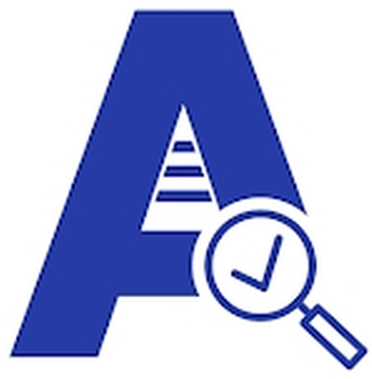Walk Through Audit
eAuditor Audits & Inspections is designed to simplify and streamline the Walk Through Audit process, enabling users to create checklists, conduct inspections, capture data, and ensure compliance with policies or guidelines. Here’s a step-by-step walkthrough of how to perform an Walk Through Audit using eAuditor Audits & Inspections:

Step 1: Setting Up eAuditor Audits & Inspections
- Download eAuditor Audits & Inspections: Install the eAuditor Audits & Inspections app on your mobile device (iOS, Android) or access the web platform via a desktop browser.
- Create an Account: Sign up for an eAuditor Audits & Inspections account or log in if you already have one.
- Explore Templates: If you’re new to eAuditor Audits & Inspections, explore the template library. eAuditor Audits & Inspections provides industry-specific Walk Through Audit templates for common types of audits, such as workplace safety, food safety, or environmental compliance.
- Customize Templates: If you have specific audit needs, you can either modify an existing template or create a new one from scratch.
Step 2: Creating or Selecting an Audit Template
- Create a New Template:
- Go to “Templates” and click “Create New Template”.
- Add Sections and Questions relevant to your audit, using fields like Yes/No, Multiple Choice, Rating Scale, or Free Text.
- Incorporate fields for capturing photos, signatures, and annotations.
- Set mandatory fields if certain questions are required for compliance.
- Use Pre-made Templates: You can also select a pre-built template from eAuditor Audits & Inspection’s library and customize it as needed. For example, a fire safety inspection checklist or an ISO 9001 audit template.
Step 3: Conducting the Audit
- Start the Audit:
- From the dashboard, click “Start Inspection” and select the appropriate template.
- Input audit details such as location, date, auditor name, and other identifiers.
- Follow the Checklist:
- As you walk through the audit site, follow the checklist of questions. eAuditor Audits & Inspections will guide you step-by-step.
- For each question:
- Select the Answer: Choose the correct option (e.g., Yes/No, Pass/Fail, Safe/Unsafe).
- Capture Evidence: Take photos or videos to provide visual evidence. You can also annotate images to highlight specific issues.
- Add Notes: Use the notes section to provide additional context or explanations for each response.
- Flag Issues:
- If non-compliance is detected or you notice an issue, you can flag it. This allows you to assign corrective actions later on.
- eAuditor Audits & Inspections allows you to immediately log actions required to resolve the issue, with due dates and assignees.
- Record Signatures:
- At the end of the audit, you can request a digital signature from the auditor and any other stakeholders to confirm the results.
Step 4: Assign Corrective Actions
- Action Assignment: If an issue is flagged during the audit, you can assign corrective actions to team members directly from the app. This ensures the right person is accountable for resolving the issue.
- Set Due Dates: Assign a deadline for when the corrective action should be completed.
- Track Resolution: Once assigned, the responsible person can update the status of the corrective action, and you can track its progress through the app.


Step 5: Generating the Audit Report
- Automatic Report Generation: After completing the audit, eAuditor Audits & Inspections automatically compiles all your inputs into a professional report, which includes:
- Summary of audit findings.
- Photos and notes.
- List of flagged issues and assigned corrective actions.
- Customize Report Format: You can customize the report format by adding your company logo, adjusting the layout, and specifying what information is included.
- Export Reports: Export the report as a PDF, Word document, CSV, or Excel file. This can be shared with management or external auditors.
Step 6: Reviewing and Analyzing Data
- Dashboard Insights: After multiple audits are conducted, you can view performance trends and data in eAuditor Audits & Inspection’s analytics dashboard. This provides insights into:
- Recurring compliance issues.
- Frequency and types of flagged items.
- Site-by-site performance comparisons.
- Create Action Plans: Based on the data trends, create strategic action plans to improve compliance or address recurring safety or operational concerns.
Step 7: Follow-Up on Corrective Actions
- Track Progress: Use eAuditor Audits & Inspection’s task management feature to follow up on assigned corrective actions. The app will notify you when corrective actions are completed or overdue.
- Re-Audits: If needed, schedule a re-audit to ensure that the flagged issues have been resolved and the site or department is now in compliance.
Step 8: Automate Future Audits
- Schedule Audits: eAuditor Audits & Inspections allows you to schedule future audits, ensuring they happen regularly without manual reminders.
- Set Recurring Audits: For ongoing compliance, set up recurring Walk Through Audit for critical areas like workplace safety or equipment maintenance.
Tips for Optimizing eAuditor Audits & Inspections


- Ensure Mobile Accessibility: Use mobile devices for field audits, which allow for quick data entry and capturing real-time evidence.
- Template Refinement: Continuously improve audit templates based on previous findings and feedback from auditors.
- Leverage Integrations: eAuditor Audits & Inspections integrates with tools like Slack, Google Sheets, and Power BI for easier reporting and tracking.
- Collaborate Across Teams: Share audit results with relevant teams, and encourage collaborative problem-solving for compliance issues.
By following this walkthrough, you can perform Walk Through Audit more efficiently, ensuring better compliance, accountability, and timely corrective actions using eAuditor Audits & Inspections.
